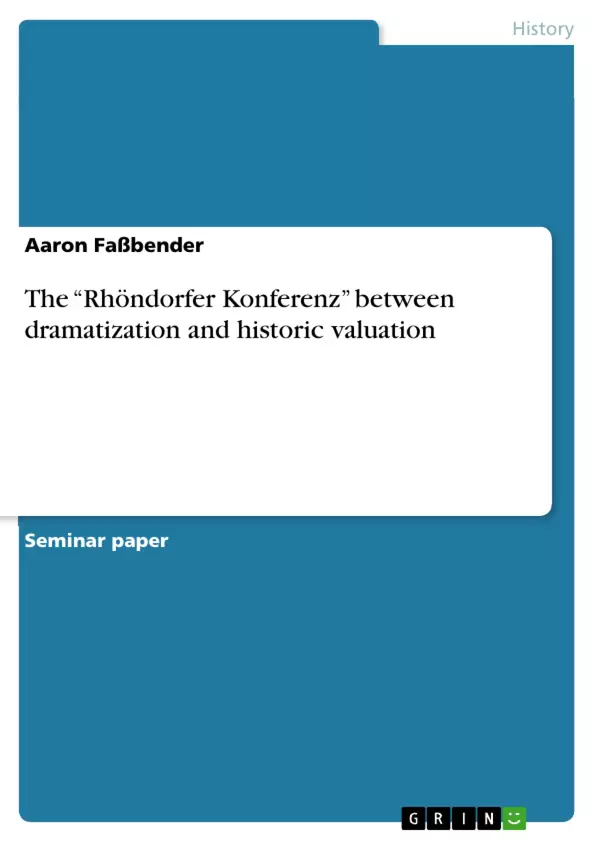On July 15th 1949 democracy returned to Western Germany, when the first elections for the Bundestag were held. Christian Democrats (25.2%) and Christian Socialists (5.8%) merged into one parliamentary group and won the elections against the Social Democrats (29.2%). Now they were in charge to form the Federal Republic’s first government.
The central questions in the formation of the government were would the Christian Democrats govern with or without the Social Democrats. Who would be the first Federal Chancellor and who the first Federal President? The most important issue in the election campaign were economics. The devastated country needed to be rebuilt after the war, the unemployment was threatening and the country would need the help from abroad. Both major parties, Christian Democrats and Social Democrats represented contrary economic ideas. The choice between CDU and SPD was also a choice of Social Market Economy versus Planned economy. After the elections the SPD claimed the Department of Economics, if they would participate in the government.
Although it was no official body of the party, a rather informal meeting on August 21st 1949 at the home of the party leader in the British Sector and head of the Verfassungsrat (committee to form the German constitution of the Federal Republic) Konrad Adenauer, seemed to be the focussing event in the memories of most main figures in the party. This meeting, seven days after the election, later known as the Rhöndorfer Konferenz (Conference of Rhöndorf), should become one of the first national myths of the young Republic. The following historiography analyzes the way the story of the conference had been told in the past and how these descriptions influenced our picture of the first Federal government to the present.
Inhaltsverzeichnis (Table of Contents)
- Introduction
- The published memoirs (1955-1972)
- The Rhöndorf Conference as a Historical Event
Zielsetzung und Themenschwerpunkte (Objectives and Key Themes)
This text explores the historical significance and lasting impact of the Rhöndorf Conference, a pivotal meeting held in 1949 that shaped the formation of the first government of the Federal Republic of Germany. The text aims to analyze the different interpretations of the conference, highlighting how the narratives of the key participants have influenced historical understandings of this event.
- The role of Konrad Adenauer in shaping the conference's outcome.
- The different perspectives on the significance of the Rhöndorf Conference, as presented by various participants.
- The impact of the conference on the formation of the Federal Republic's first government.
- The development of historical interpretations of the conference over time.
Zusammenfassung der Kapitel (Chapter Summaries)
- Introduction: This section introduces the context of the Rhöndorf Conference, outlining the political landscape of post-war Germany and the key issues at stake in the formation of the new government.
- The published memoirs (1955-1972): This chapter examines the early narratives about the Rhöndorf Conference as presented in the memoirs of key figures like Robert Pferdemenges and Konrad Adenauer. The chapter explores how these memoirs emphasized the decisive role of Adenauer in securing the formation of a small coalition government.
Schlüsselwörter (Keywords)
The key terms and concepts explored in this work include: Rhöndorf Conference, Konrad Adenauer, Federal Republic of Germany, German politics, historical narratives, memoirs, coalition government, Social Market Economy, and the role of historical memory.
Frequently Asked Questions
What was the Rhöndorf Conference of 1949?
It was an informal meeting held at Konrad Adenauer's home on August 21, 1949, to decide the formation of the first government of the Federal Republic of Germany.
What was the main economic conflict between the CDU and SPD in 1949?
The choice was between the Social Market Economy (represented by the CDU) and a Planned Economy (favored by the SPD).
Why did Adenauer prefer a small coalition over a grand coalition?
Adenauer wanted to implement the Social Market Economy without the compromises that would have been necessary in a coalition with the Social Democrats.
How did the published memoirs influence the history of the conference?
Memoirs published between 1955 and 1972 often dramatized the event, portraying Adenauer as the decisive leader who single-handedly shaped the young Republic's future.
Who were the key participants in the Rhöndorf meeting?
The meeting included party leaders from the CDU/CSU, such as Konrad Adenauer and Robert Pferdemenges, who discussed the first Chancellor and President candidates.
- Quote paper
- M. A. Aaron Faßbender (Author), 2005, The “Rhöndorfer Konferenz” between dramatization and historic valuation, Munich, GRIN Verlag, https://www.grin.com/document/182587



